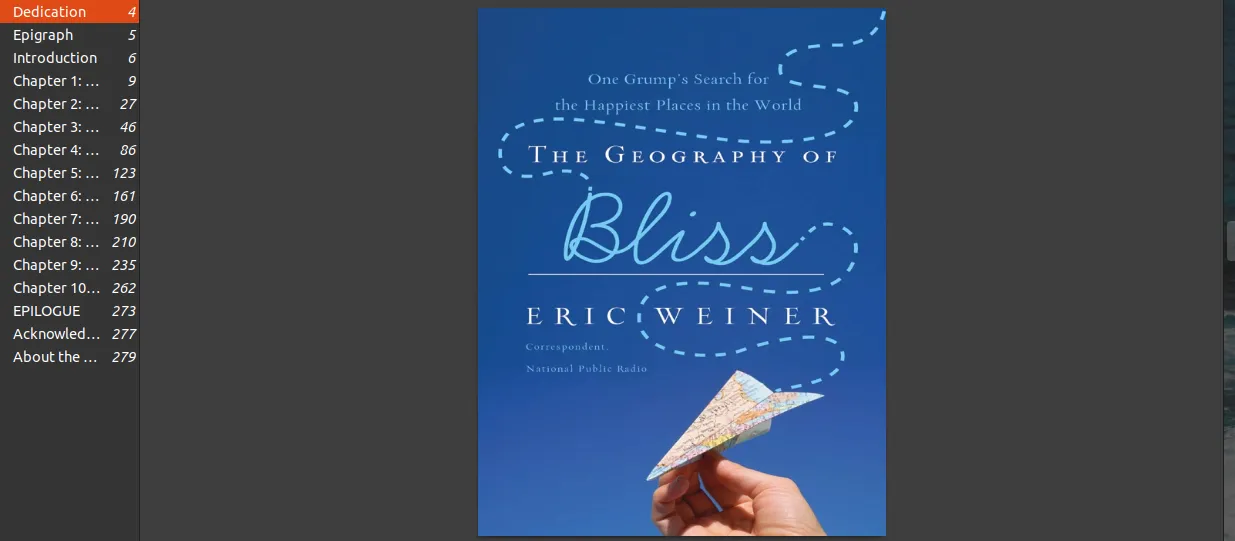
Though it is cliche, trying to find the essence of happiness from Traveling, Eric Weiner took his journey from a different perspective. He combined happiness backed by research with his observation of places that are seemingly and is statistically considered, “happy”. Early on his journey, he mentioned that he visited some of the unhappiest places on earth including Indonesia as a foreign correspondent . His journey from places that he considered “unhappy” led him to questions, “ what if he traveled to happy places?”
As an Indonesian, I wondered what makes him think we are unhappy? Is it poverty? Rampant corruption, what is it?
The truth is that unhappy people, living in profoundly unhappy places, make for
good stories. They tug at heartstrings and inspire pathos.
I agree with his sentiment that it might inspire us or feel pity but it dawned on me that are happy places really happy? What is the definition of happiness? That got me intrigued to follow his journey. First, to find why Indonesian might be considered unhappy and second, learning from these so called “happy” places.
In his book, he visited over 10 countries in which he often asks around, “ are you happy?” questions. His search concluded with the idea that ;
“ There's more than one path to happiness.”
Written in travelog style, it’s easy to get carried away through his journey. He has a way with words that make you feel like you’re pulled in and traveled with him. One part that intrigued me was the chapter where he visited India. For me, India isn’t a happy place and is similar to Indonesia in a way. But like him, I agree that happiness may be a contradiction; a way how he described India and happiness . Exactly like other westerners who visit India, he went into an ashram. It’s another cliche part about it but nonetheless, that’s forgivable to me.
In the end, the book as a whole offers an interesting approach to defining happiness. There are takeaways that you can learn from the book in how different people and cultures approach happiness. I personally would suggest he go back to Indonesia and ask around what makes people happy. Perhaps, he could change his mind.
If you are into a travelog that offers more than just a story of places to visit, Weiner did a great job with anthropological travelog. He offers more than places but also stories from individuals that he meets along the way. It is a light read but also enriching your views about other cultures and their definition of happiness.
Additional Note :
I found this book when I tried learning how to write a good anthropological travelog. I am intrigued by the idea of visiting other places to learn about even the basic things of life. Sometimes, when I travel I find that people share different values than mine. That’s where I learn to accept differences and multiple ways of living. I believe that the more you travel, the more you can learn about differences and accept that there is no absolute way of living this life. Moreover, the book personally inspires me to travel with a purpose. Not just traveling in one place but also has a goal and synthesizes something to answer. Only recently I travel with some sort of idea such as my travelog about all the ancient architecture in Indonesia. Perhaps in the future, I can finally touch on the anthropological aspect of traveling where not only I get to visit beautiful places but also learn the culture of the natives.

Mac's Pinmapple Travel List


 | Mac is a jack of all trades. A typical introvert in love with literature, books, technology and philosophy. She is also so into nootropics, productivity, minimalist lifestyle, cybersecurity, and languages. Other than that, she is passionate about cooking and traveling. In her free time, she enjoys learning various things. If you like her content, don't hesitate to upvote, leave a comment or a feedback. A re-blog is also appreciated. |